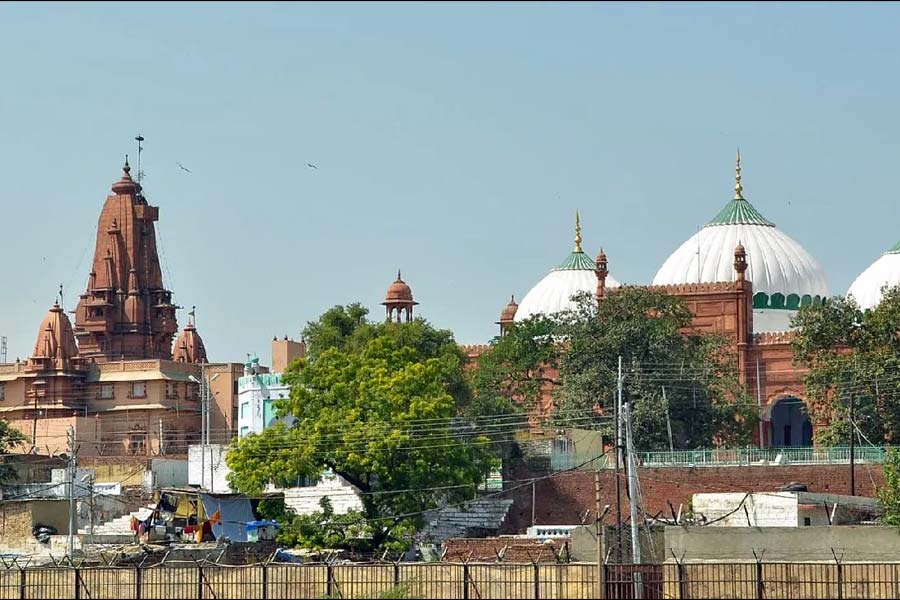The Supreme Court is scheduled to hear on Tuesday a plea of the Muslim side against the Allahabad High Court order rejecting their petition challenging the maintainability of 18 cases related to the Krishna Janmabhoomi-Shahi Idgah dispute in Mathura.
A bench of Justices Sanjiv Khanna and Sanjay Kumar will hear the plea filed by the Committee of Management Trust, Shahi Masjid Idgah against the August 1 order of the high court. The mosque management committee's plea has been filed through advocate RHA Sikander.
On August 1, the high court rejected the plea challenging the maintainability of 18 cases related to the temple-mosque dispute in Mathura, and ruled that the "religious character" of Shahi Idgah needs to be determined.
The high court had dismissed the Muslim side's contention that the suits filed by Hindu litigants relating to the dispute over the Shahi Idgah mosque complex adjoining the Krishna Janmabhoomi temple violated the Places of Worship (Special Provisions) Act, and were thus not maintainable.
The 1991 Act prohibits changing the religious character of any shrine from what existed on the day of the country's Independence. It exempted only the Ram Janmabhoomi-Babri Masjid dispute from its purview.
The cases filed by the Hindu side seek the "removal" of the Aurangzeb-era mosque they claim was built after demolishing a temple that once stood there.
In its ruling, the high court had said the 1991 Act did not define the term "religious character" and the "disputed" place cannot have a dual religious character -- of a temple and a mosque, which are "adverse to each other" -- at the same time.
"Either the place is a temple or a mosque. Thus, I find that the religious character of the disputed place as it existed on August 15, 1947 is to be determined by documentary as well as oral evidence led by both the parties," the high court judge had said.
Justice Mayank Kumar Jain of the high court had concluded that the cases "do not appear to be barred by any provisions of the Wakf Act, 1995; the Places of Worship (Special Provisions) Act, 1991; the Specific Relief Act, 1963; the Limitation Act, 1963 and Order XIII Rule 3A of the Code of Civil Procedure, 1908".
On August 9, the top court had extended its stay till November on the operation of the Allahabad High Court order that allowed a court-monitored survey of the Shahi Idgah mosque complex.
A bench headed by Justice Sanjiv Khanna had ordered continuation of the stay the apex court had imposed on January 16 on the operation of the December 14, 2023 order of the high court.
The high court in its December 14, 2023 order had allowed a court-monitored survey of the Shahi Idgah mosque complex and agreed to the appointment of a court commissioner to oversee it.
The Hindu side claims the premises hold signs suggesting that a temple once existed at the site.
A bunch of petitions has been filed by the mosque management committee in the apex court including the one challenging the May 26, 2023 order of the high court transferring to itself all matters related to the dispute pending before a Mathura court.
In Mathura, a suit was filed in the court of Civil Judge Senior Division (III) for shifting the Shahi Idgah mosque, claiming that it was constructed on a part of the 13.37 acre land of the Shri Krishna Janmabhoomi Trust.
The Hindu side had requested the high court to conduct the original trial like it had done in the Babri Masjid-Ram Janmabhoomi title dispute.
While allowing the plea for a court-monitored survey, the high court had last year said that no harm should be caused to the structure during the exercise which it indicated could be overseen by a three-member commission of advocates.
Except for the headline, this story has not been edited by The Telegraph Online staff and has been published from a syndicated feed.











